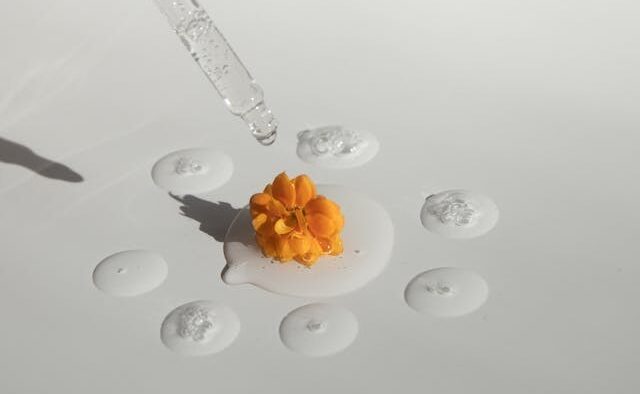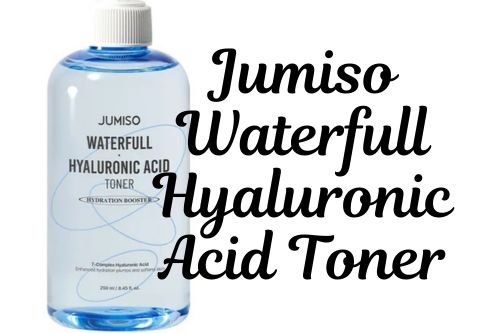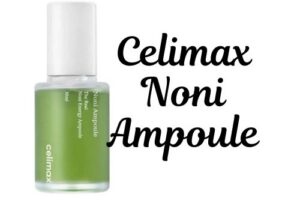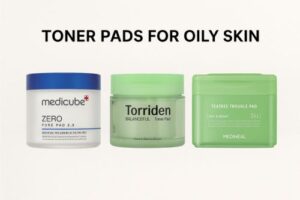What Does Niacinamide Do To Skin
Understanding what niacinamide can do for your skin is key to harnessing its full potential. This article dives into the various ways niacinamide works its magic—improving skin tone, texture, and hydration. Whether you’re new to this ingredient or looking to learn more about its benefits, this guide will help you understand why niacinamide is a must-have in your skincare routine.
What is Niacinamide?

Definition: Niacinamide, also known as vitamin B3 or nicotinamide, is a water-soluble vitamin that plays a crucial role in maintaining healthy skin. It is a versatile ingredient known for its ability to address various skin concerns effectively.
Sources and Forms: Niacinamide naturally occurs in foods such as meat, fish, and legumes, where it contributes to overall health and well-being. In skincare, it’s commonly found in topical products like serums, creams, and lotions. When applied to the skin, niacinamide offers a range of benefits, making it a popular choice in many skincare routines.
Scientific Evidence and Research

Studies and Clinical Trials:
- Effectiveness: Numerous studies have highlighted niacinamide’s benefits in skincare. Research published in the Journal of Clinical and Aesthetic Dermatology found that 4% niacinamide significantly reduced the appearance of hyperpigmentation and improved skin texture. Another study in Dermatology revealed that niacinamide at 5% concentration improved skin barrier function and reduced inflammation in patients with acne and rosacea.
- Safety: Clinical trials have generally shown niacinamide to be well-tolerated with minimal side effects. A study in Skin Pharmacology and Physiology reported that daily application of niacinamide for several months caused only mild, infrequent irritation, indicating its safety for long-term use.
Expert Opinions:
- Dermatologists’ Insights: Many dermatologists endorse niacinamide for its versatility and effectiveness. Dr. Joshua Zeichner, a well-known dermatologist, highlights niacinamide’s ability to improve skin hydration, reduce redness, and enhance the overall appearance of the skin. Dr. Hadley King also supports its use, noting its benefits for a wide range of skin concerns including aging, acne, and sensitivity.
Key Benefits of Niacinamide
- Reduces Inflammation: Niacinamide helps calm irritated skin and reduce redness, making it especially beneficial for those with acne or rosacea. Its anti-inflammatory properties can soothe and heal irritated areas.
- Minimizes Pores: By regulating sebum production, niacinamide helps to reduce the appearance of enlarged pores, giving your skin a smoother, more refined look.
- Improves Skin Texture: This vitamin promotes an even skin tone and smooths out rough patches, enhancing the overall texture of your skin.
- Enhances Skin Barrier: Niacinamide strengthens the skin’s natural barrier, which improves moisture retention and makes the skin more resilient against environmental stressors.
- Brightens Skin: It helps to reduce hyperpigmentation and uneven skin tone, leading to a brighter, more radiant complexion.
- Reduces Fine Lines and Wrinkles: By boosting collagen production and improving skin elasticity, niacinamide can diminish the appearance of fine lines and wrinkles, making your skin look younger and firmer.
How Niacinamide Works

Mechanism of Action:
Niacinamide operates at the molecular level by influencing several key processes in skin cells. It helps:
- Enhance Cellular Repair: Niacinamide boosts the skin’s ability to repair itself by promoting the production of ceramides, which are essential for maintaining a healthy skin barrier. This process helps to improve skin texture and reduce inflammation.
- Regulate Melanin Production: It inhibits the transfer of melanin (the pigment responsible for dark spots) to the skin’s surface, helping to lighten hyperpigmentation and even out skin tone.
- Increase Collagen Synthesis: Niacinamide stimulates collagen production, which enhances skin elasticity and reduces the appearance of fine lines and wrinkles.
Interaction with Other Ingredients:
Niacinamide is highly compatible with most other skincare ingredients. It can be layered with:
- Hyaluronic Acid: For added hydration and plumping effects.
- Vitamin C: To boost brightening and anti-aging benefits.
- Retinoids: While both can be used in conjunction, it’s best to start with lower concentrations to avoid potential irritation.
Choosing the Right Niacinamide Product
Concentration Levels:
- Typical Concentrations: Niacinamide products typically range from 2% to 10% concentration. Lower concentrations (2-5%) are effective for general skin improvements, like reducing redness and enhancing barrier function. Higher concentrations (5-10%) are better for more targeted treatments, such as fading dark spots or improving skin texture.
- Effectiveness: Generally, concentrations of around 5% are considered effective for most skin types and concerns. Higher concentrations may offer enhanced results, but they can also increase the risk of irritation, especially if you’re new to niacinamide.
💻 7 Niacinamide products really work
Comparisons with Other Ingredients
Niacinamide vs. Vitamin C:
- Benefits Comparison: Niacinamide and Vitamin C both offer skin-brightening benefits, but they work in slightly different ways. Niacinamide helps to even out skin tone and reduce hyperpigmentation by inhibiting melanin transfer and strengthening the skin barrier. Vitamin C, on the other hand, is a powerful antioxidant that helps to neutralize free radicals and reduce oxidative stress, leading to a brighter complexion and improved skin texture.
- Complementary Use: These two ingredients can work well together. Vitamin C provides immediate brightening effects and protection against environmental damage, while niacinamide offers long-term skin barrier improvement and reduces redness. Combining them can enhance overall skin radiance and resilience.
Niacinamide vs. Retinoids:
- Differences in Function: Niacinamide and retinoids (like retinol) address different aspects of skin care. Niacinamide improves skin barrier function, reduces inflammation, and evens out skin tone. Retinoids, however, are primarily known for their ability to accelerate cell turnover, improve skin texture, and reduce fine lines and wrinkles.
- Using Together: Using niacinamide and retinoids together can be very effective. Niacinamide can help to soothe and hydrate the skin, counteracting the dryness and irritation often caused by retinoids. To use them together, apply niacinamide in the morning (as it can also boost skin resilience and offer antioxidant benefits) and retinoids in the evening. If irritation occurs, consider alternating nights or using a lower concentration of retinoids.














Post Comment